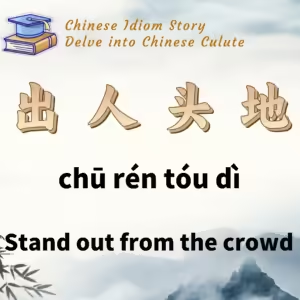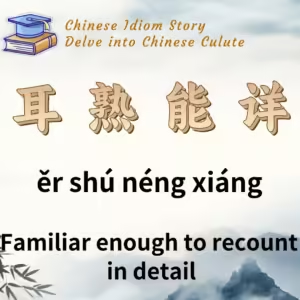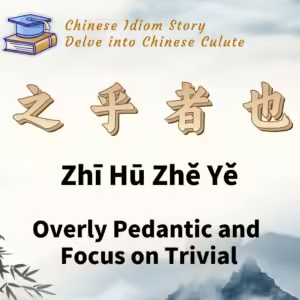
Chinese Idiom: 出人头地 (Chu Ren Tou Di)
English Translation: Stand out from the crowd
pīn yīn: chū rén tóu dì
Idiom Meaning: This idiom means to excel or surpass others, achieving a level of prominence or success that distinguishes oneself from the rest.
Historical Source: Letter by the Northern Song dynasty scholar Ouyang Xiu (欧阳修) titled “With Mei Shengyu” (《与梅圣俞书》).
Idiom Story:
The story of the idiom involves the famous Chinese literary figures of the Northern Song dynasty: Su Xun (苏洵), and his sons Su Shi (苏轼) and Su Zhe (苏辙), collectively known as the “Three Sus” (三苏).
Su Xun, born in 1009 AD, was a renowned scholar who dedicated himself to study after failing the imperial examination in 1047. Despite his dedication, he remained unrecognized until Ouyang Xiu, a prominent scholar and statesman, recommended him to the emperor. Su Xun’s works, including “The Book of Power” (《权书》), were highly praised, and he was appointed as a library official.
In 1056, Su Xun brought his sons, Su Shi and Su Zhe, to the capital to participate in the imperial examinations. Ouyang Xiu, who was a judge in the examination, and his friend Mei Yaochen (梅尧臣), were impressed by Su Shi’s brilliant essay, which they thought might have been written by another candidate, Zeng Gong (曾巩). They were hesitant to award the first place to Su Shi but later discovered it was indeed his work. Su Zhe also passed the examination with distinction at just 19 years old.
Ouyang Xiu, recognizing Su Shi’s exceptional talent, felt that Su Shi might surpass him in literary achievements. However, he was pleased by this prospect and showed his support for the younger generation. In a letter to Mei Yaochen, he expressed his contentment with the idea that the younger talents were excelling, saying, “I, an old man, should step aside and let him outshine others.”
This story highlights Ouyang Xiu’s recognition of talent and his willingness to make way for the younger generation. The phrase “出人头地” (chū rén tóu dì), which originally came from the sentiment of “let him outshine others,” was later used to describe someone who excels and stands out significantly from others.






